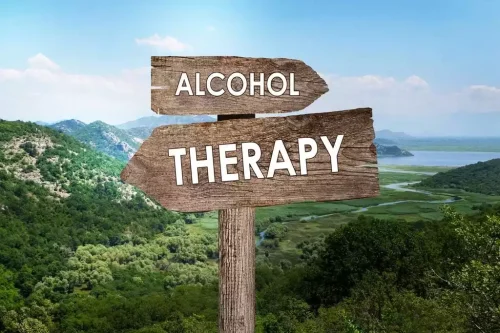
Additionally, good hygiene practices such as regular bathing and frequent changes of clothing can help reduce one’s risk of infection and discomfort due to excessive sweat production. Other treatments include medications, iontophoresis (a machine used to reduce sweat output), surgery, or a combination of these therapies. In postmenopausal women who experience hot flashes and night sweats due to reduced estrogen levels, hormone replacement therapy may also be effective in reducing excessive sweating. Managing alcohol-related night sweats involves a combination of lifestyle adjustments, proactive hydration, and environmental tweaks.
Night Sweats and Alcohol: What is the Connection?

However, pay attention not to indulge in alcohol drinking as it affects the body and mind in many ways. One of the common side effects of alcohol drinking is sweating or perspiring, a physiologic process where sweat glands in the skin produce fluid. More serious consequences include liver damage, brain damage and even cancer. Alcohol consumption can lead to a temporary increase in body temperature. This happens because alcohol causes blood vessels near the skin’s surface to dilate, resulting in a flushed or warm feeling.
Why Do I Sweat A Lot After Drinking Alcohol?
Alcohol can cause the heart rate to quicken or the heart rhythm to become irregular. It is best that people with alcohol dependency or intolerance speak with a doctor. According to Brown University, up to 50 percent of adults of Asian descent have difficulty metabolizing alcohol, due to inactivity of one of the enzymes needed by the liver to process marijuana addiction alcohol. This can lead to facial flushing, dizziness, rapid heartbeat, headache and nausea. Aayushi Gupta is a health writer with a special interest in trends related to diet, fitness, beauty and intimate health.

How do you get rid of the alcohol smell in your body?
Understanding the various factors contributing to night sweats is key in determining the appropriate action for effectively addressing this symptom. Sometimes, a person may appear to have alcohol intolerance but react to another ingredient in a drink. Doctors may use allergy tests to determine whether alcohol is the issue. People may not realize that because of this, they are at risk of why does alcohol make you hot hypothermia in cold weather. During hot weather, they may begin to experience nausea and dizziness with dehydration in addition to sweating.

You might also consider finding a support group or seeking counseling to connect with others who are on a similar journey. Alcohol can cause your blood sugar levels to drop, according to a study published in Biomolecules in 2015. After a night of drinking, your working memory can be impacted, and you might find that you have a diminished ability to perform basic tasks, according to research published in Journal of Clinical Medicine in 2019. Long-term heavy alcohol drinking can also mean you’re more vulnerable to depression and anxiety, Dr. Mieses Malchuk says. Your body struggles to regulate temperature as it rids itself of alcohol’s toxins. Unfortunately, it can be difficult to get rid of the smell of alcohol until it has been metabolised or excreted.
- For example, if you are struggling with your grip on the ball you can apply antiperspirant to your hands so you won’t sweat as much from them.
- The detox process can be challenging, but specialized treatment programs provide a safe and supportive environment.
- Enjoy a drink, or maybe two, but keep the amount you drink limited to reduce the likelihood and severity of alcohol sweats.
- Regaining your health allows you to rebuild your life, free from addiction’s chains.
If you or someone you love is dealing with drinking or substance use that has gotten out of hand, there are confidential treatment options available. When you drink alcohol, it’s absorbed into your bloodstream through your stomach and small intestine. From there, it travels to your liver, where it is metabolized into acetaldehyde and then into acetate.
Residential vs. Outpatient Mental Health Treatment in Georgia: How to Choose the Right Level of Care
An alcohol intolerance means your body cannot break down alcohol well.1 Some people are more prone to alcohol intolerance than others. The only way to prevent the symptoms of alcohol intolerance is to avoid drinking alcohol. Night sweats, characterized by excessive sweating during sleep, can manifest across various parts of the body, including the face, chest, back, and arms. This symptom often leaves individuals waking up feeling cold as a result of the moisture generated by the body. Alcohol night sweats refer to the occurrence of excessive sweating during the night, often affecting the face, chest, back, and arms.
Treating Alcohol-Related Night Sweats
Therefore, if you or someone you know is dealing with complications such as alcohol sweats or other withdrawal symptoms caused by an alcohol misuse disorder, you could benefit from support. Avoiding excessive alcohol consumption and reducing or eliminating alcohol from the lifestyle is the most effective way of treating or minimising night sweats from alcohol. Essentially, drinking alcohol increases the amount of sweat the body produces and this is an issue for people who already sweat excessively. However, a byproduct also increases the feeling of hotness https://ecosoberhouse.com/article/addiction-vs-dependence-what-is-the-difference/ in the skin. This is a widespread occurrence and does not cause any harm to the body unless it’s over a prolonged period. Vasodilator pertains to the chemical that triggers the widening of the blood vessels.